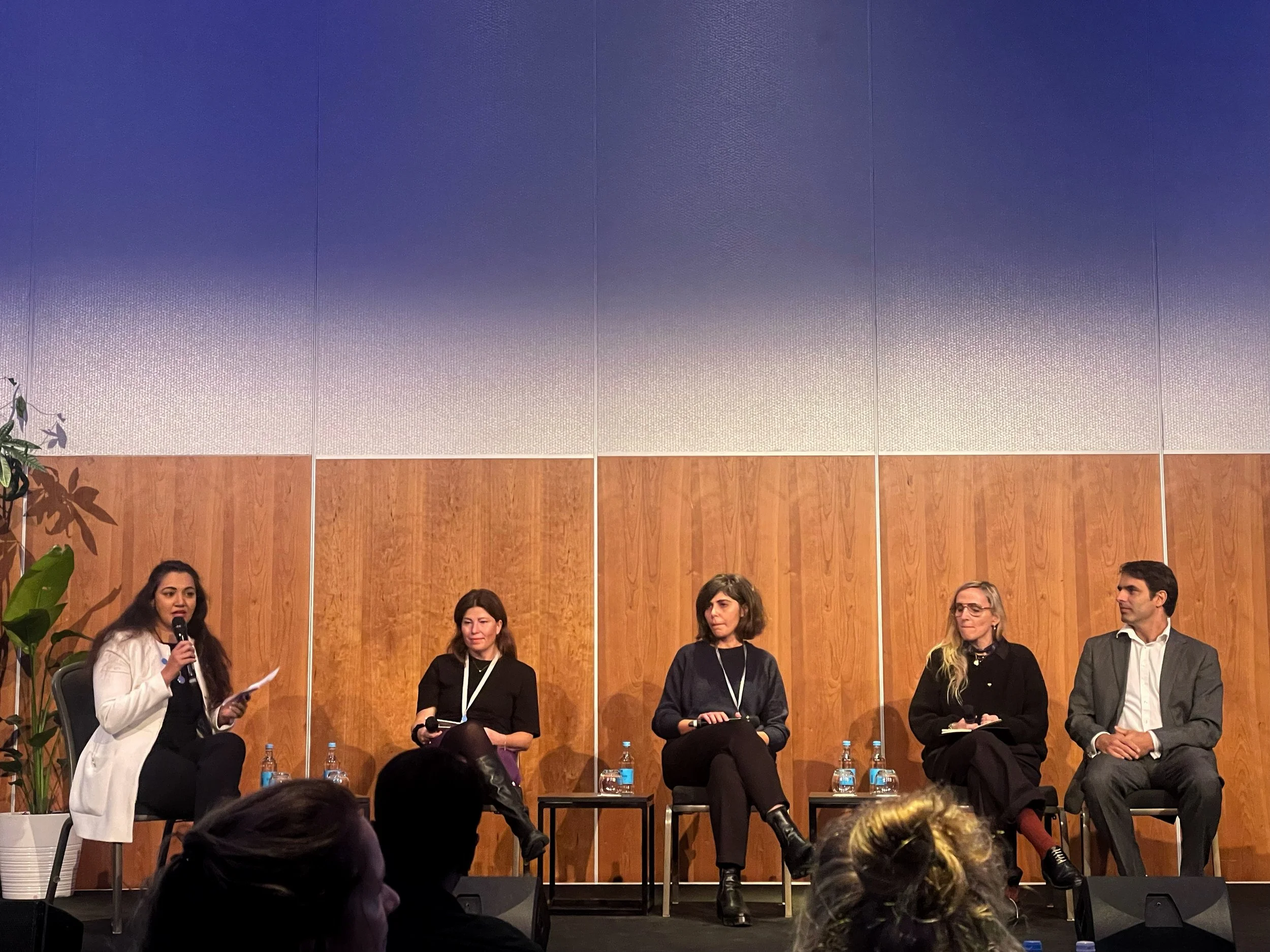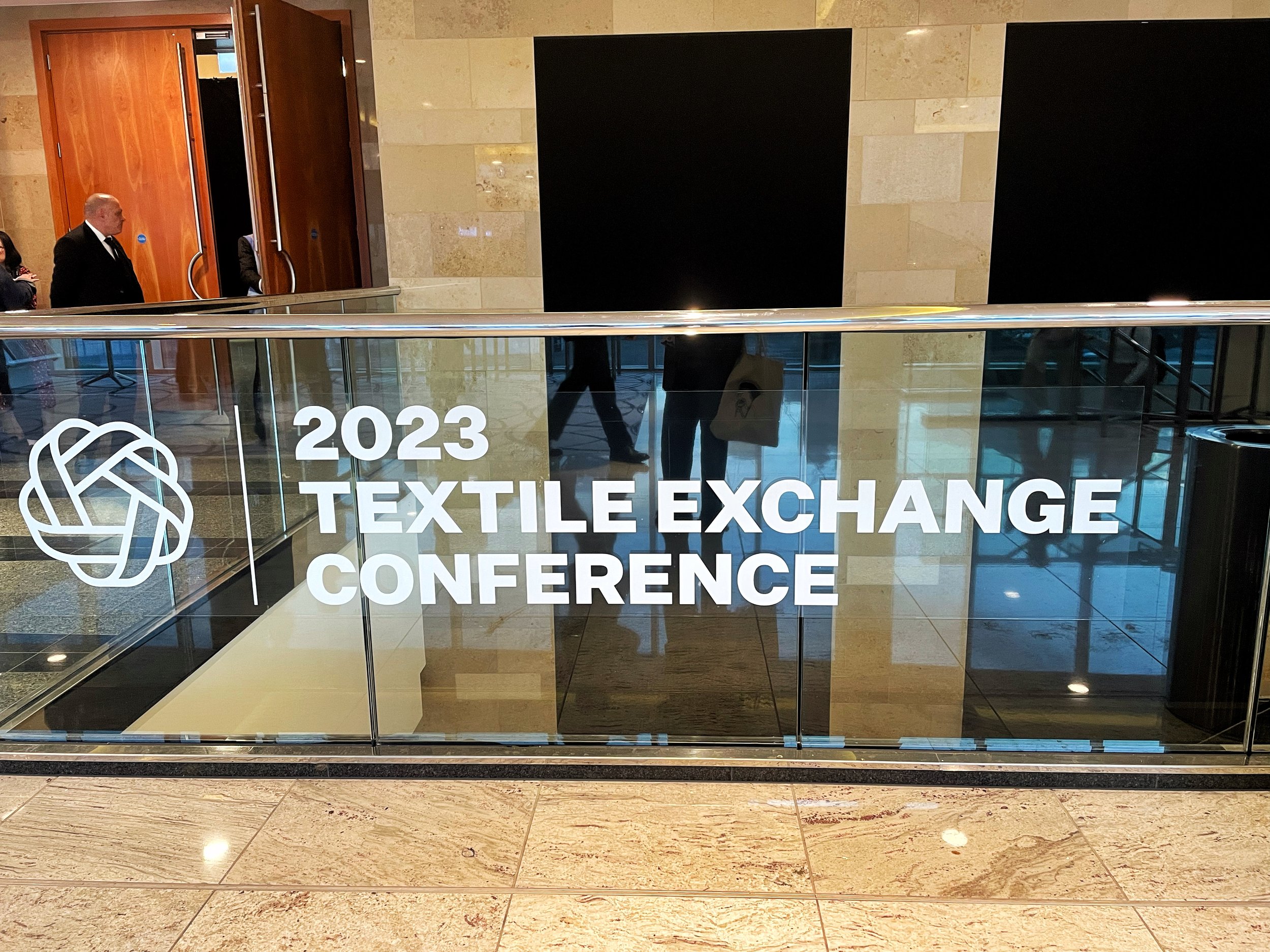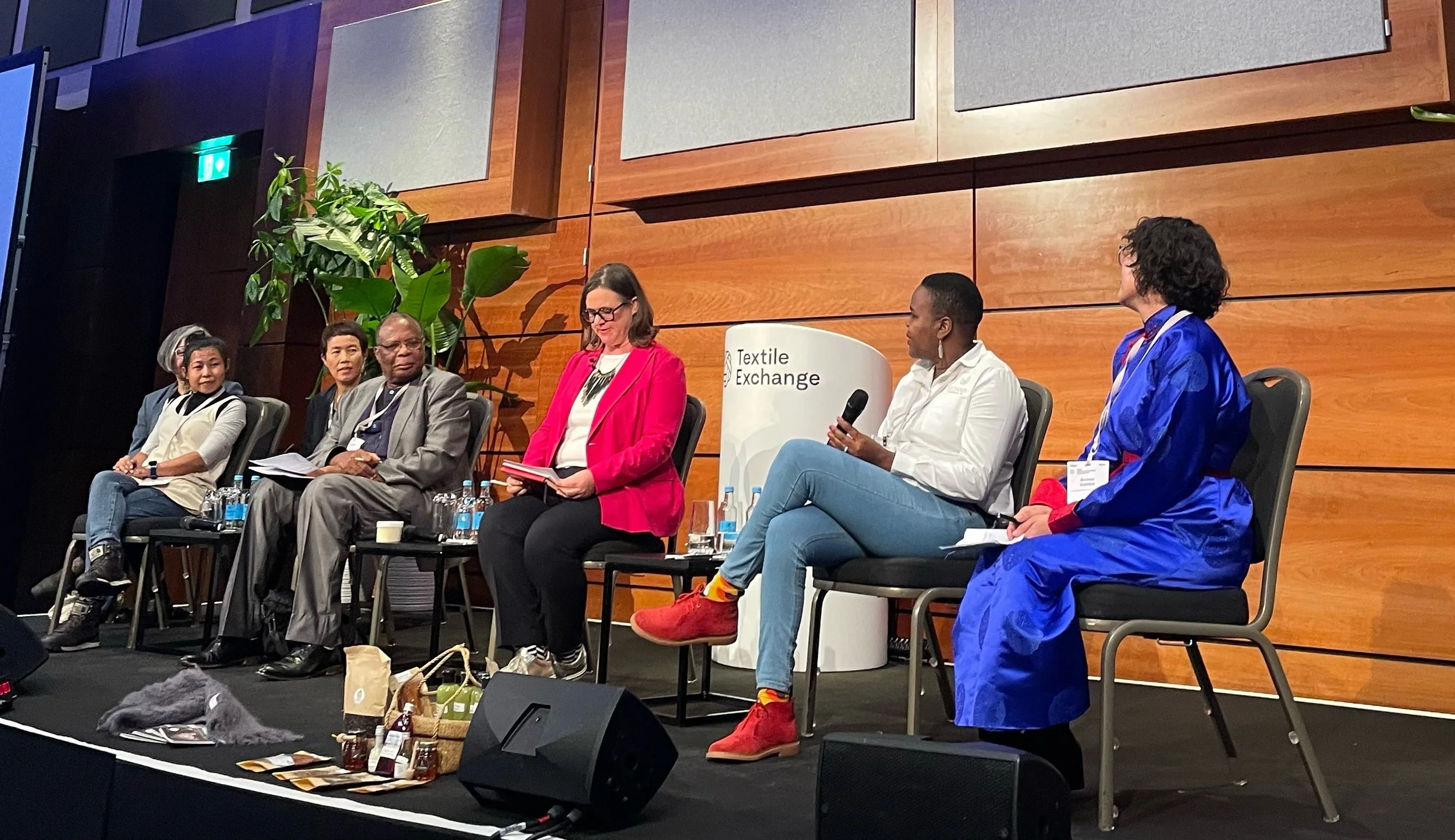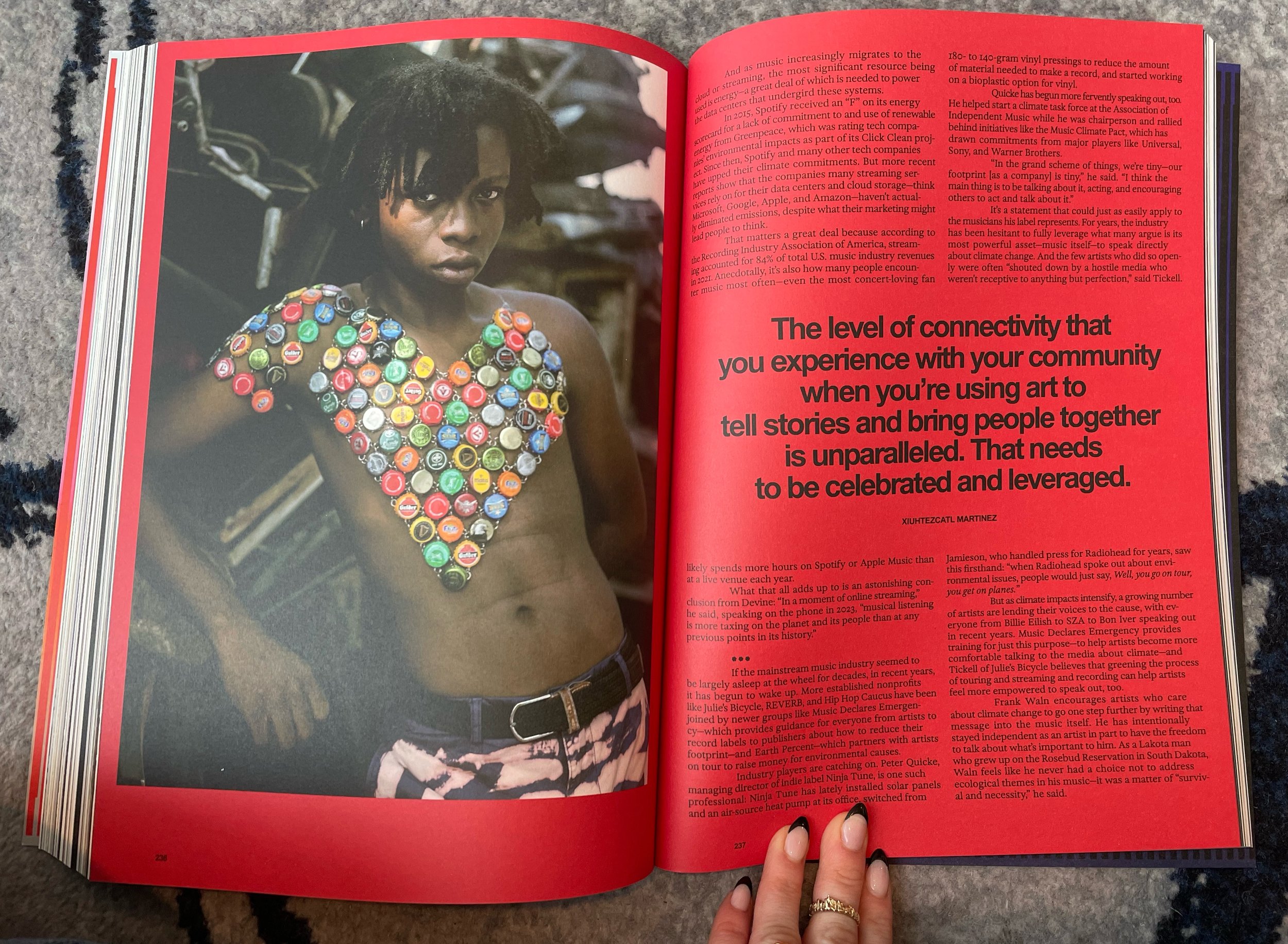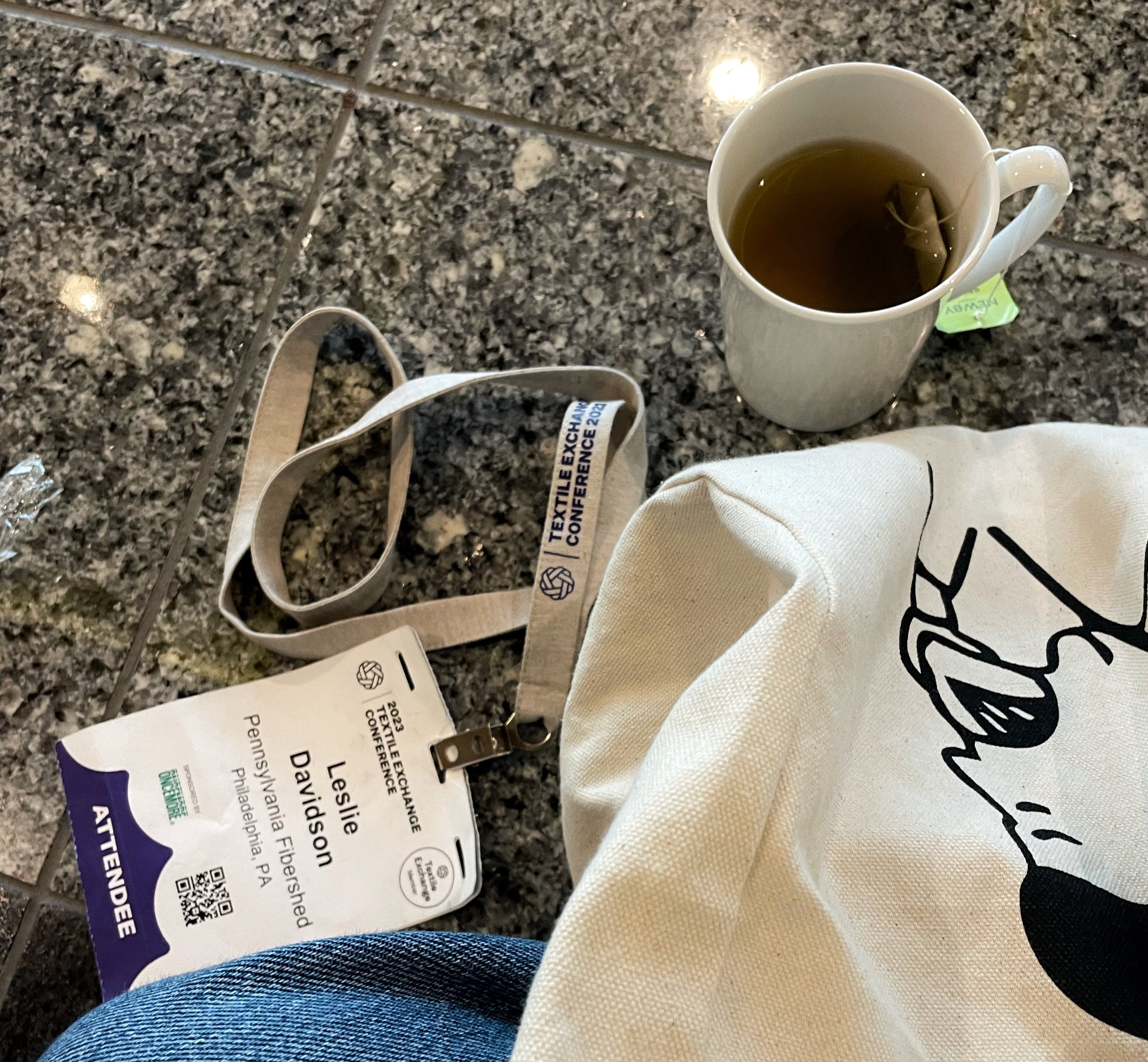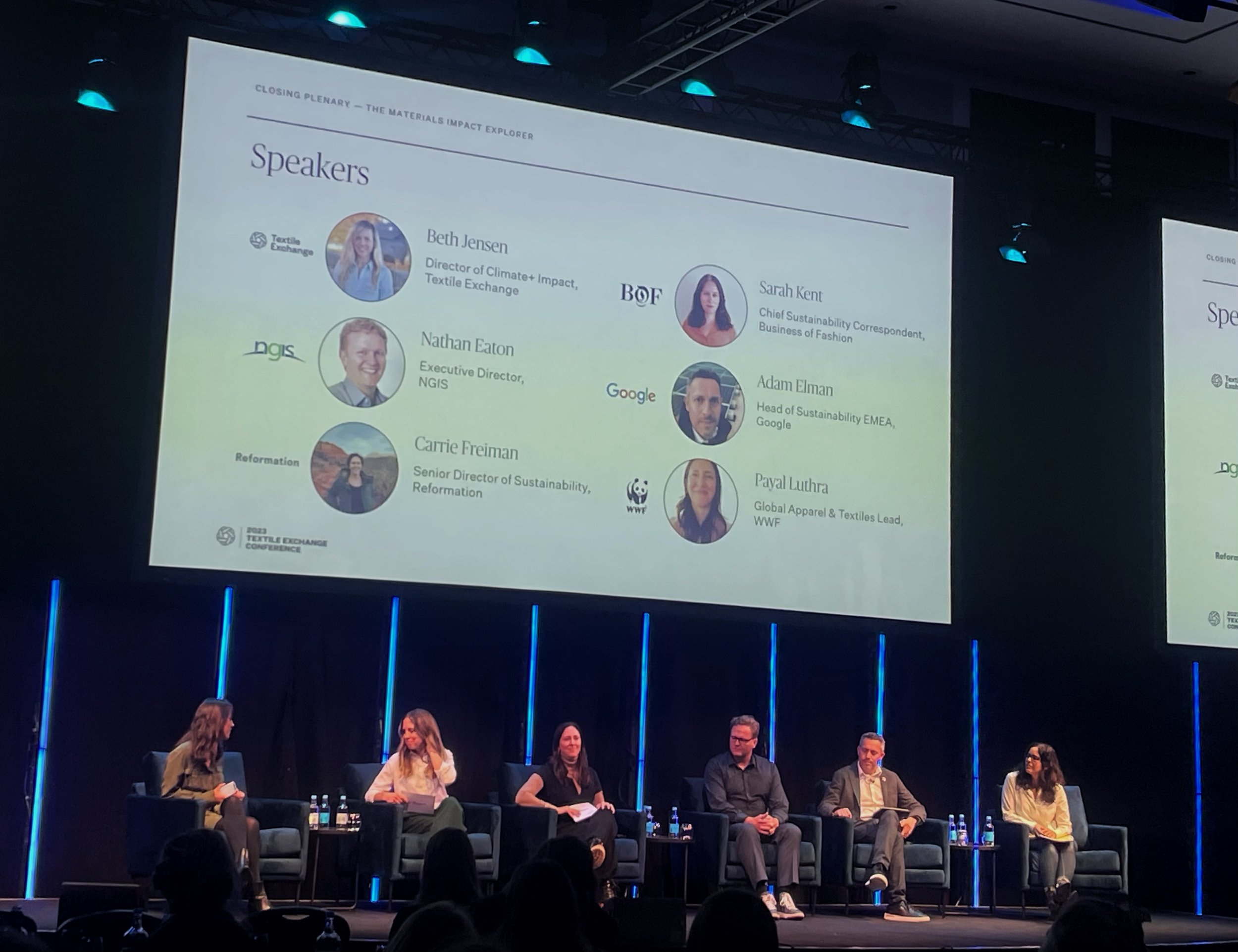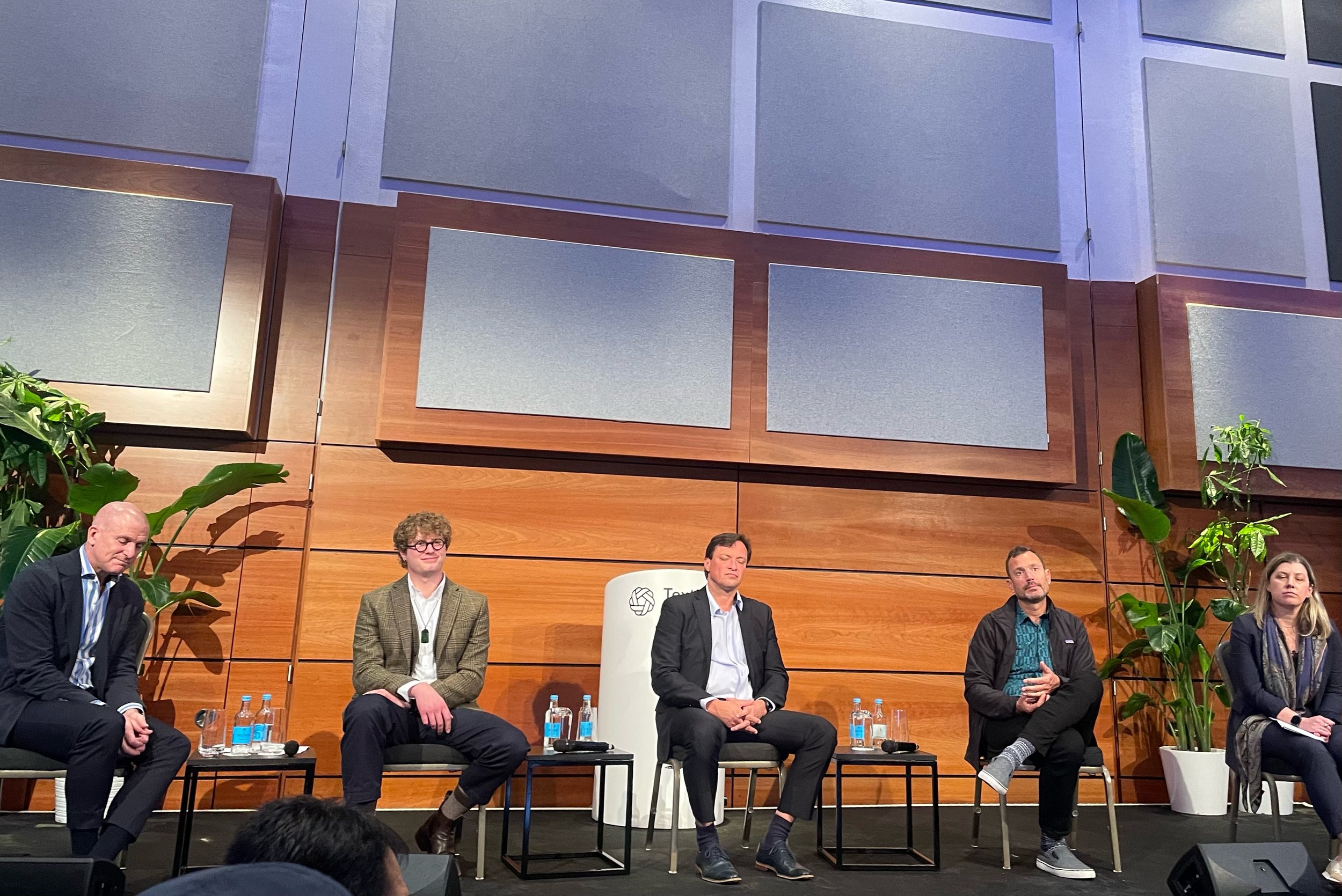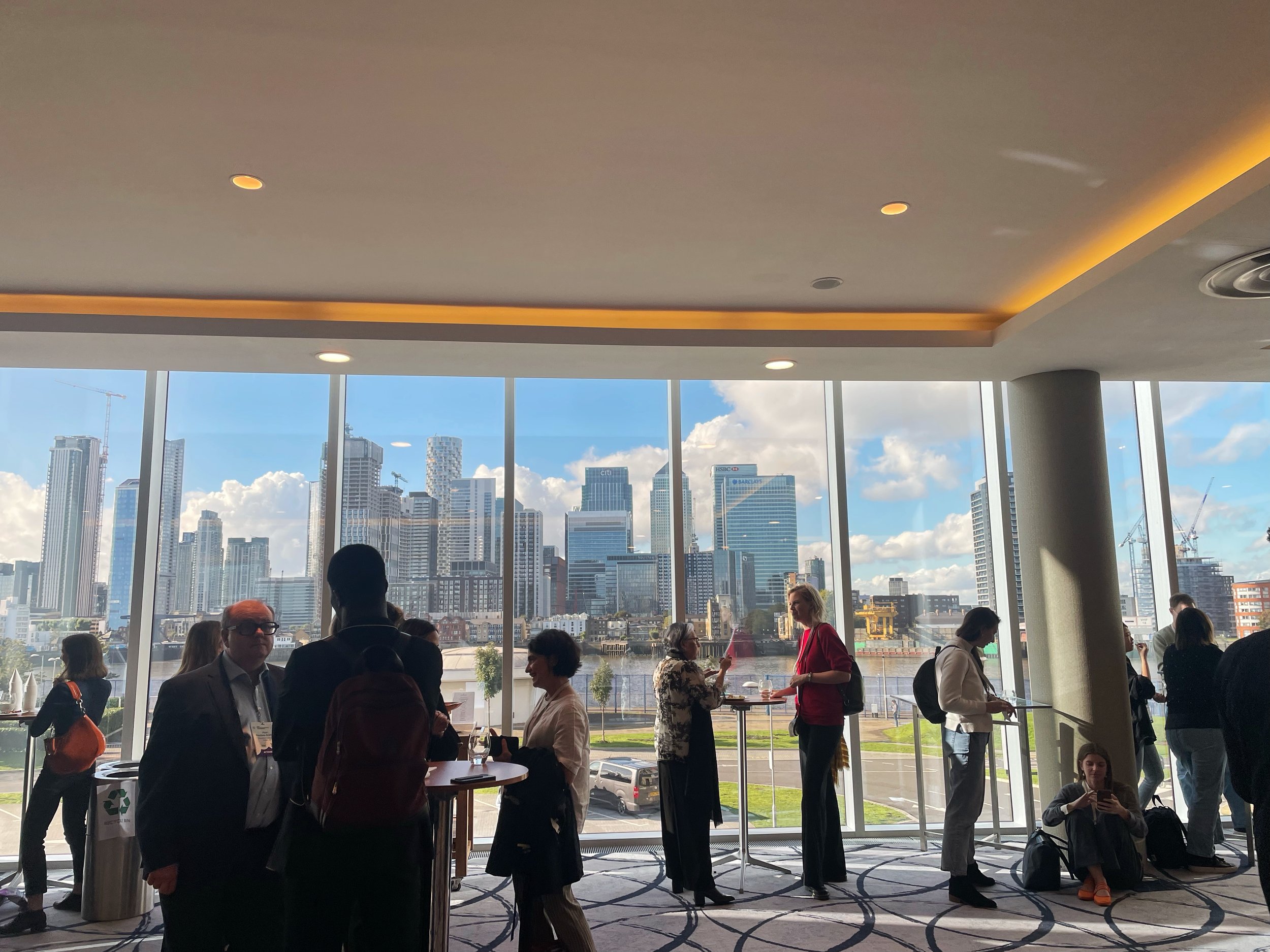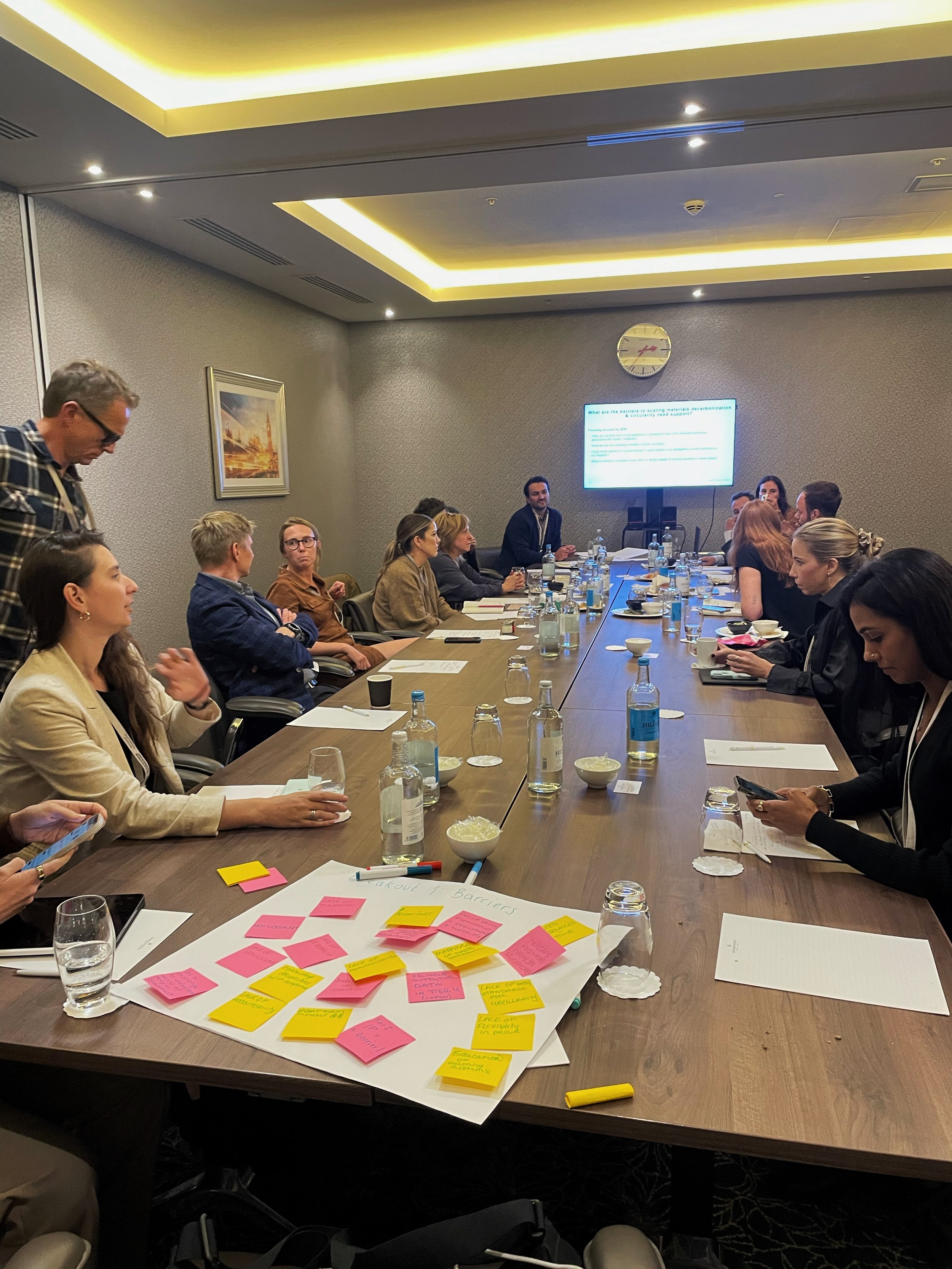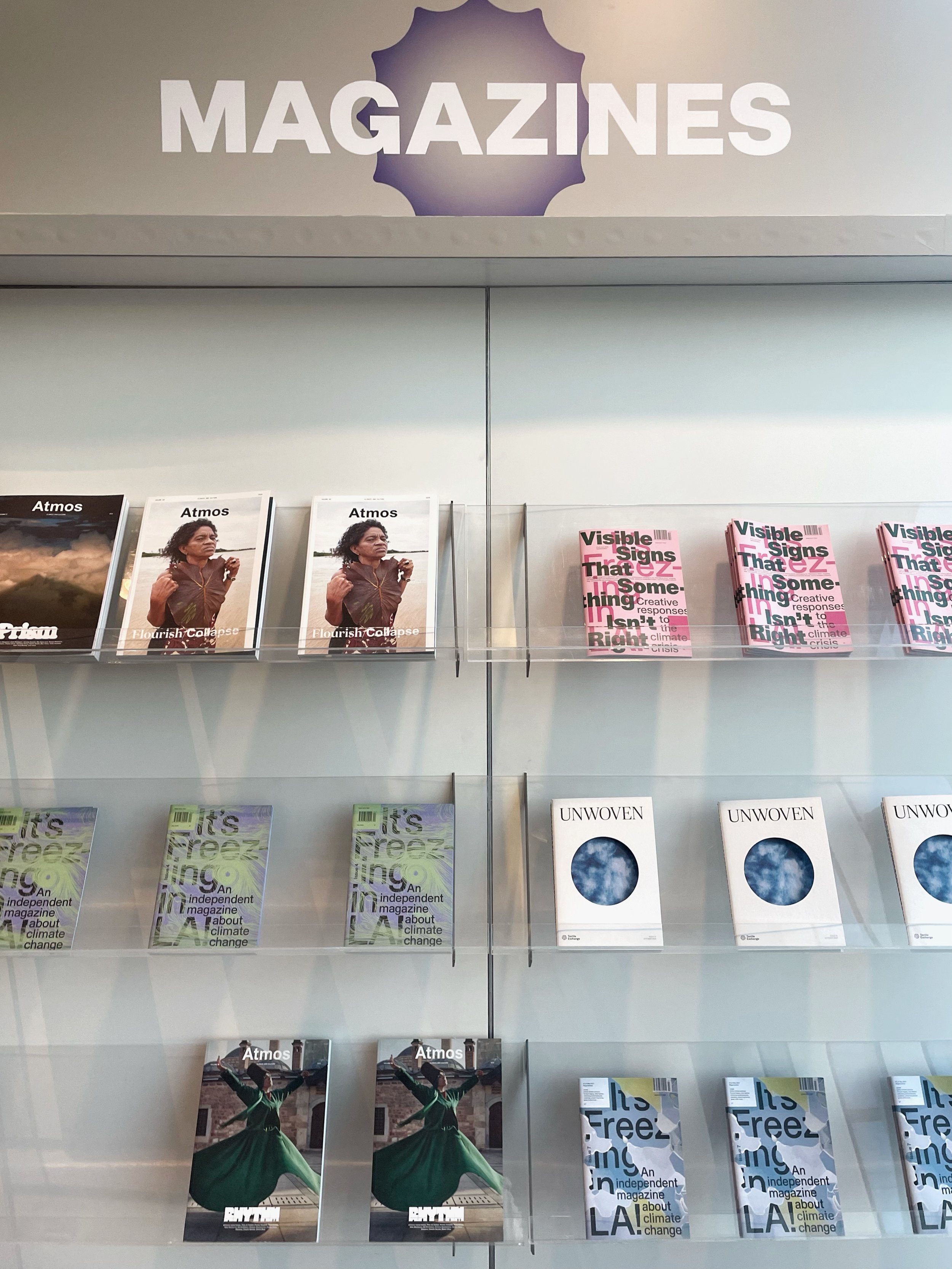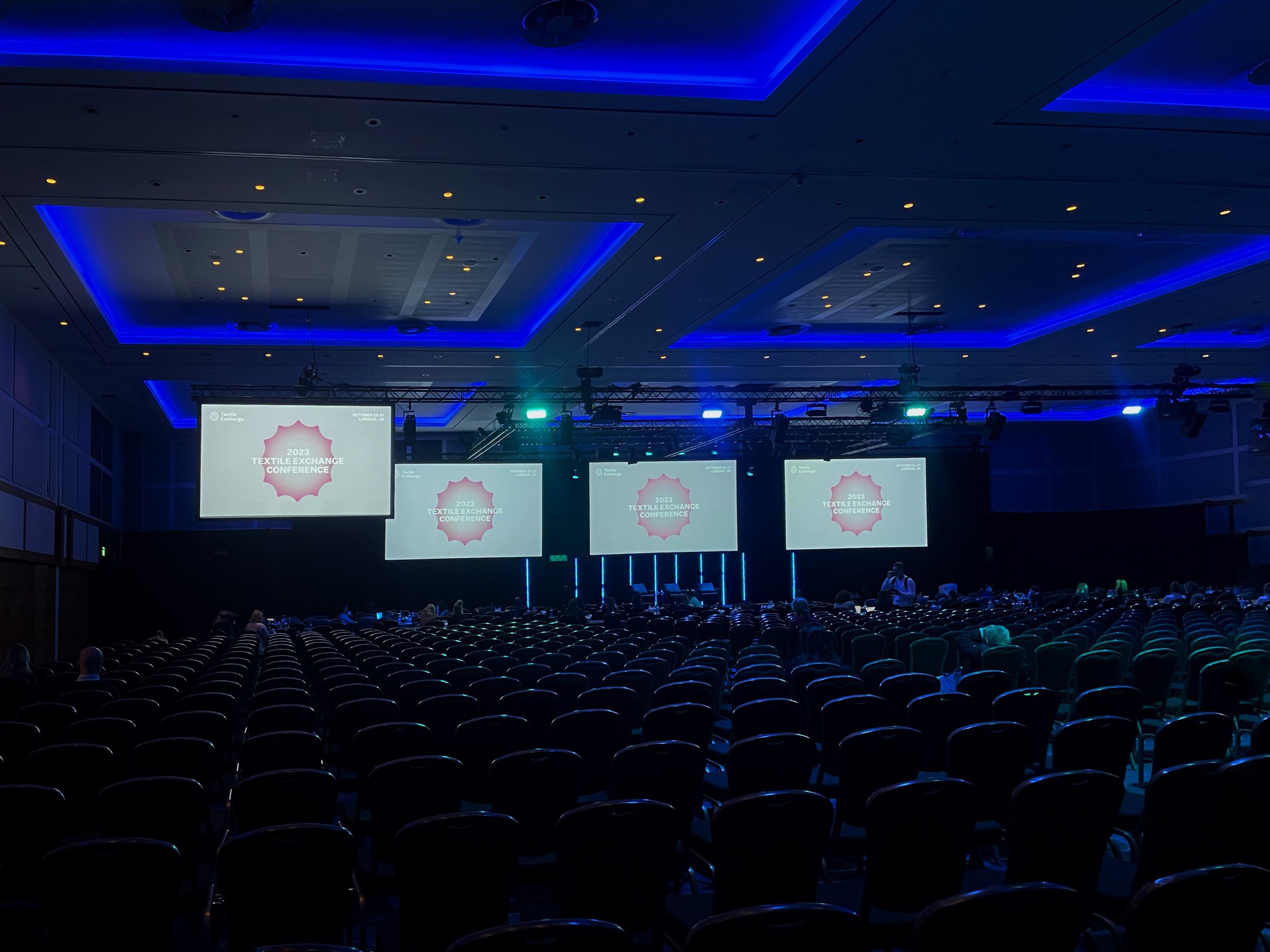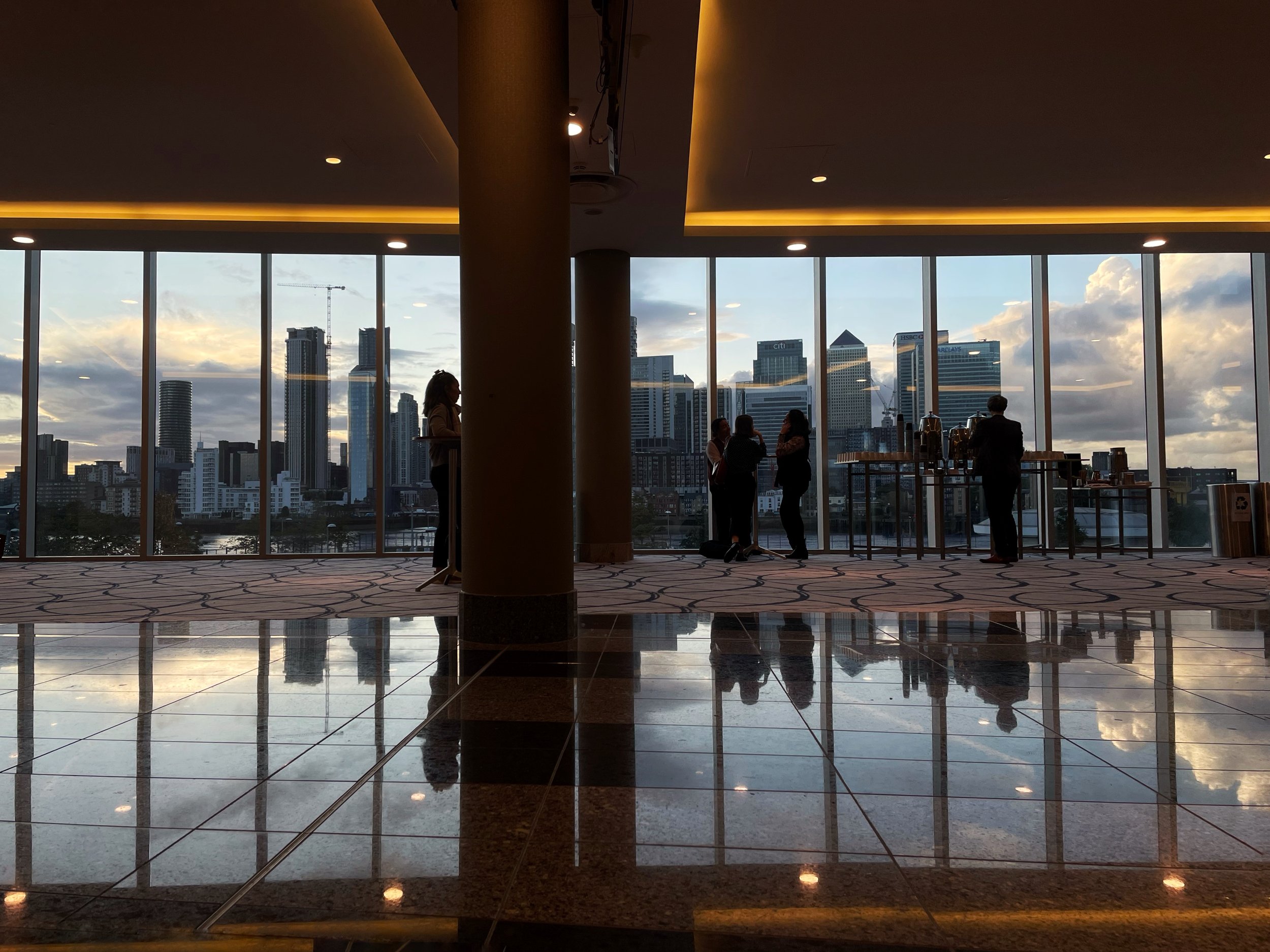Weaving a New Narrative: 16 Key Takeaways from the 2023 Textile Exchange Conference
Last week, I had the honor of representing PA Fibershed at the 2023 Textile Exchange conference in London, held from October 24th to the 27th. This conference brought together leaders and experts from the fashion, textile, and apparel industry to collaboratively explore the challenges and solutions needed to combat the climate crisis. Each day was dedicated to specific themes, starting with the overarching topic of "The Industry'' and progressing into discussions on the second day about building meaningful relationships with rightsholders, or individuals whose human rights have been or may be affected by a company's services and practices, such as farmers/producers. The third day focused on discussions about ongoing initiatives, policies aimed at aligning the industry with the 2050 climate goals, and strategies for implementing these changes to foster a more sustainable future for our planet and the industry. The conference concluded with a day "in the field," where attendees had the opportunity to visit farms, manufacturing facilities, labs, and textile recycling facilities to get a firsthand look at what is happening on the ground.
Here are some key takeaways from the conference:
1. Shifting Language for Connection: To move beyond the mindset of consumerism and self-interest, it's crucial to adjust our language. Replacing terms like "consumer" with "citizen" and "supply system" instead of "supply chain" can help people connect with the cause on a more personal level.
2. Leading with Hope: With increasing awareness of climate change, scare tactics are a thing of the past. Instead, the focus should be on solution-based storytelling that offers hope and empowers individuals to make a positive impact by adjusting their habits.
3. The Power of Storytelling: Storytelling stands as a powerful tool for driving change, as exemplified by the remarkable success of the organic food movement, which achieved its goals without relying on any data.
4. Need for Education: Both the industry and the general public require more education on sustainability and circularity. Education is where individuals develop a sense of self and the motivation for change.
5. Collaboration is Key: Collaboration is instrumental in driving change and achieving success, so the longstanding industry trademark of closely guarding supplier information could potentially harm stakeholders striving to meet 2050 climate standards if they fail to adopt more open practices.
6. Ethical Challenges: Businesses struggle with a serious moral dilemma: if they are not in business, they cannot make a difference. At the same time, being in business often requires compliance with systems that contribute to these issues. To address this challenge, it is imperative to provide more education and awareness to C-level executives and decision-makers.
7.Tech and Innovation: Technology and innovation are rapidly shaping the path towards circularity. However, the vast majority of these innovations have not yet achieved the scale necessary for widespread impact. To usher in this transformation at a more rapid pace, brands must make substantial investments in circular solutions.
8. Investment in Rightsholders: Brands should invest in their rightsholders, particularly producers, to create a positive impact. Clear communication along the supply system fosters ease of doing business, reduces stress, and promotes a sense of community, ownership, and respect.
9. Ground-Level Understanding: Risk assessments and decision-making require input from farmers and other stakeholders on the ground. Without in-depth knowledge of the supply chain, understanding the social and environmental consequences of the products we put to market becomes nearly impossible.
10. Prioritizing Sustainability: Consumers will buy whatever businesses offer in the marketplace. It's crucial for businesses to understand that prices are constantly fluctuating and price increases that reflect clear positive change are OK! The key takeaway here is that decisions and choices made by businesses should not be fear based or financially driven. Instead, the priority should be a commitment to doing better.
11. Inclusive Systemic Change: To achieve genuine, collective change, it's imperative to ensure that no one is left behind. Instead of everyone solely pursuing the best supplier or source, the emphasis should be on bridging the gaps and promoting inclusivity. This entails not excluding smaller businesses or individuals who may not have fully adapted to new systems yet. Rather, the approach should involve investing in these smaller entities, elevating them to meet the desired standards, and fostering a sense of unity and cooperation in the pursuit of progress.
12. Timely Action: Doing the right thing too late is just like doing the wrong thing, especially when it comes to climate change.
13. Self Reflection: Always remember to ask yourself, “what am I destroying or improving and for whom?”
14. Words of Wisdom: "Being stylish doesn't have to cost the earth."
15. Investing in the Future: Keeping forests standing is the best way to invest in our planet.
16. EU's Transformative Goals: The European Union is considering a significant overhaul of the textile industry. They firmly hold the belief that textiles have become the new equivalent of plastics, and fast fashion is poison. Their ultimate objective is to make fast fashion go out of fashion. In fact, within the EU, all forms of fashion are now classified as fast fashion. To bring this vision to life, the EU is actively developing sixteen pieces of legislation that will have a profound impact on the industry. Read about the EU strategy for sustainable and circular textiles here.
Each day of the conference left me with a profound sense of exhaustion, which wasn't solely due to the long days of listening, learning and networking or the challenge of functioning on a 5-hour time difference. Instead, it was due to the ever-present understanding and reality that addressing the climate crisis requires an immense amount of effort and dedication, which frequently feels like a never ending uphill battle with infinite obstacles that are rapidly multiplying and beyond anyone's control.
The week was a vivid reminder that no single organization can tackle this monumental task on its own. The path to creating systemic change demands extensive collaboration and a unified effort from all stakeholders. To meet the ambitious 2050 climate goals, there must be a substantial and rapid shift in societal values, a task that can at times feel overwhelmingly daunting and nearly impossible.
Nonetheless, I found encouragement in the success of this event (over 1400 attendees were present) and the commitment of some of the world's largest brands who invested their time and resources in attending and educating their staff. This indicates that a change is on the horizon, whether it is driven by legislative mandates or not.
Click here to find out more about the Textile Exchange. For a full list of businesses in attendance, visit the conference website.
Leslie Davidson is the Co-Founder of PA Fibershed and Executive Director of All Together Now PA.


